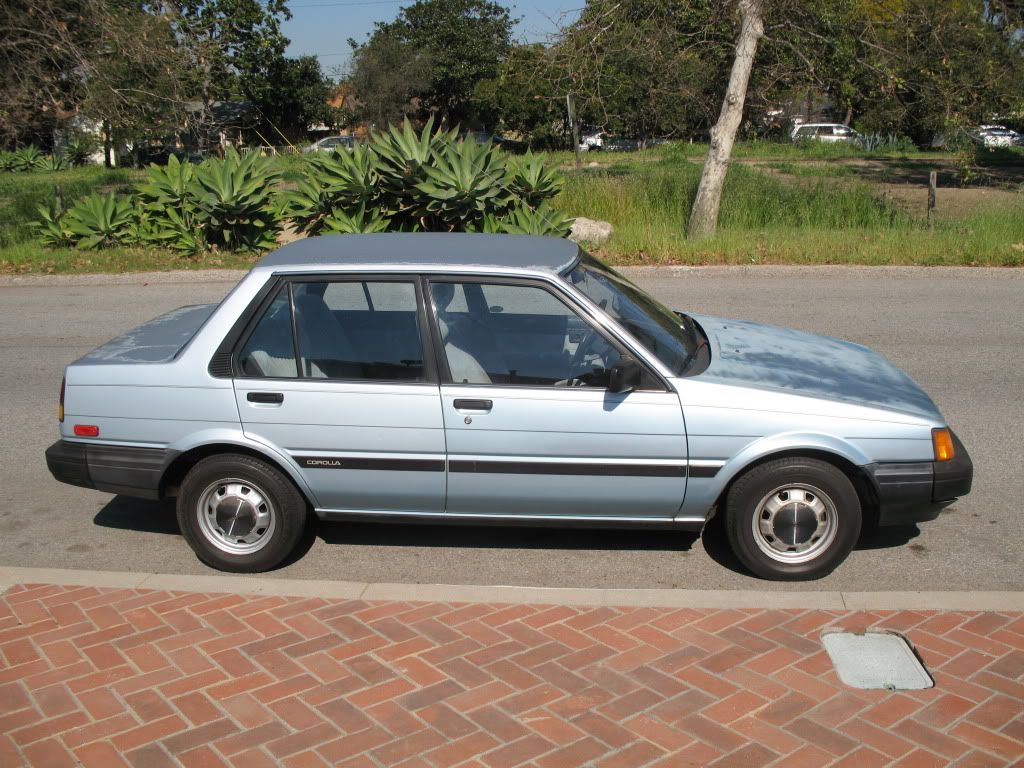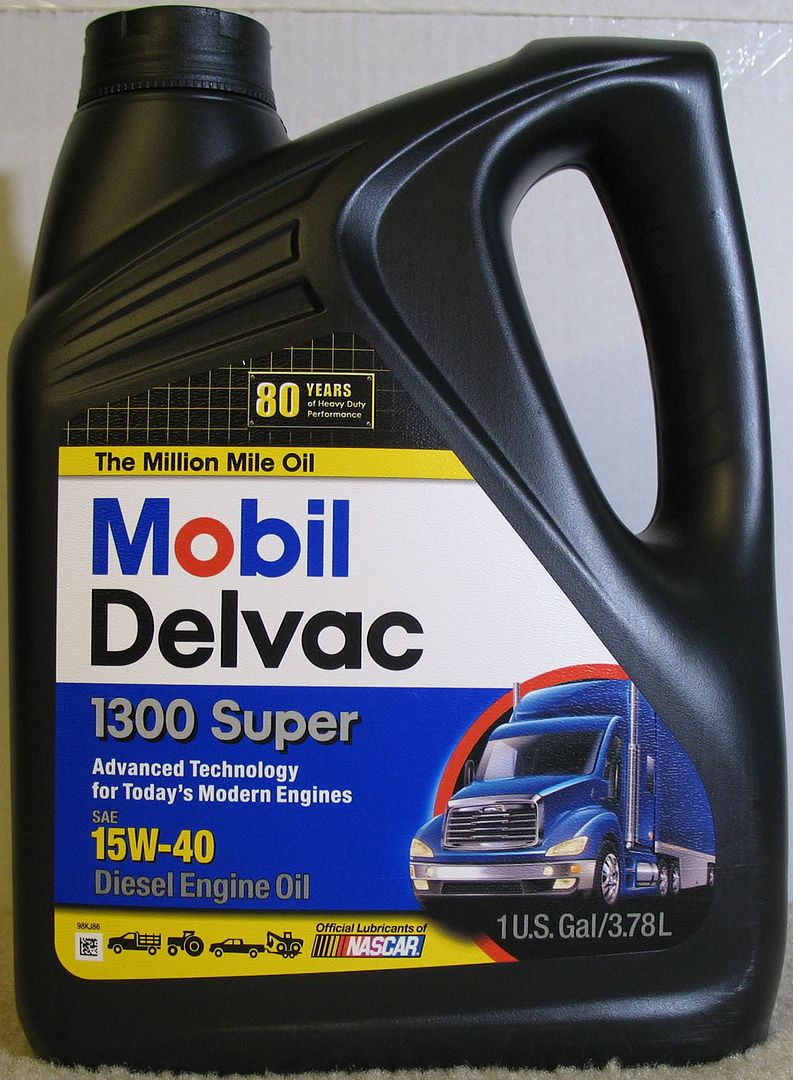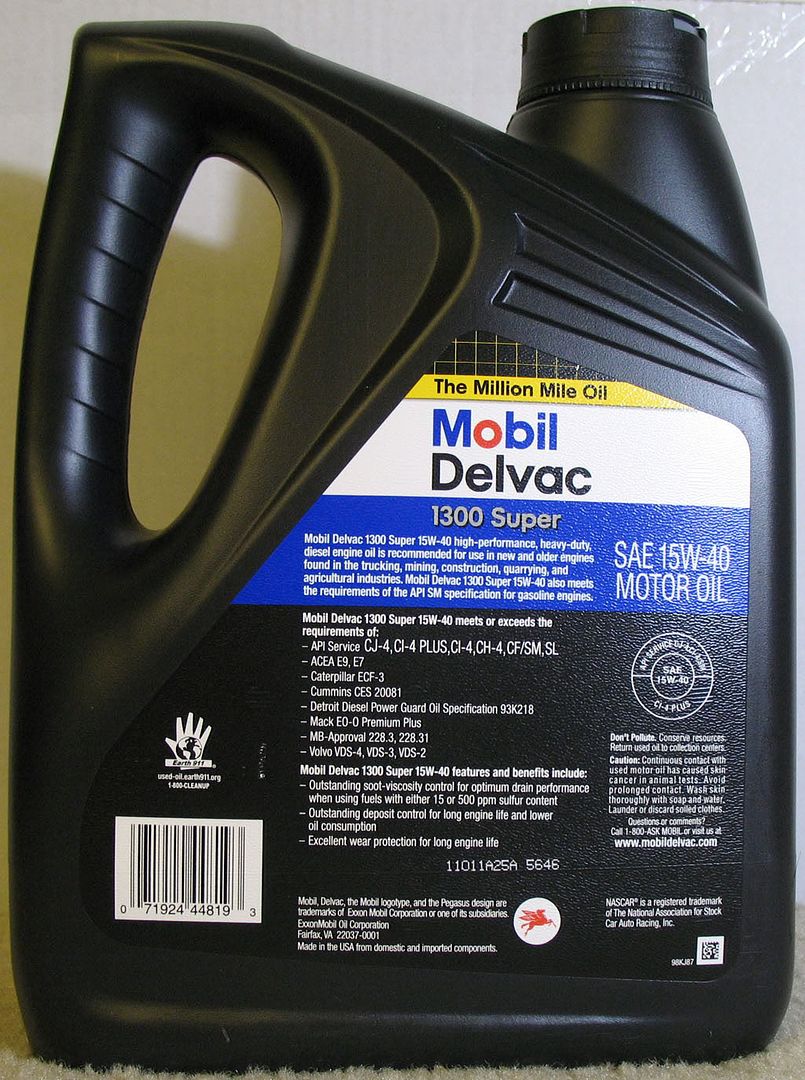Originally Posted By: Gokhan
It's a 74 HP 1.6 L SOHC flat-tappet-valvetrain engine with a lean-burning dual-barrel carburetor (the "L" in 4A-LC) and dozens of emission-control systems (the "C" in 4A-LC).
The owner's manual specifies all SF or SF/CC grades between 10W-30 and 20W-50 and 5W-30 for only temperatures below -10 F and not above 50 F. 15W-40 or 20W-50 is specified OK for above 10 F. In LA the lowest you could have is around freezing.
Since it's an older engine design, it also has somewhat higher clearances, benefiting from higher viscosity to control engine wear and oil consumption. Higher viscosity also helps control leaks around worn seal. Higher ZDDP is also a plus to reduce engine wear. The moly in Delvac also enhances the effectiveness of ZDDP, and synthetic oils tend not to have moly, which is bad for engine-wear control. So, you get the benefits of conventional oil with great solvency and seal compatibility and the presence of moly. I change the oil every 3 months; so, the shorter OCI with conventional oils is not a concern. The excellent HTHS of Mobil Delvac 1300 Super 15W-40 is also great for hot days of the Southwest. Therefore, I certainly have the peace of mind with Mobil Delvac 1300 Super 15W-40, and I will stick with it from now on.
Makes sense to me. The suggestion you received about using the Rotella synthetic is not a bad one. Considering it's a Group III/III+ synthetic, at least to my knowledge, I don't think it would cause you any seal issues. However, given your maintenance plan and and year round ambient temperatures, Delvac 1300 will suit you well and at a good price point. You should be able to get it in a 5 gallon pail, which is how I prefer to get Delvac 1300.
Up here, because of the cold, I plan to get Esso XD-3 HDEO (Imperial Oil is our version of ExxonMobil) in 5w-30 for my old F-150 next winter. It's conventional and is basically the same line as Delvac 1300; from what I understand, XD-3 15w-40 HDEO is being discontinued with Delvac 1300 taking its place, presumably to avoid overlap.
I was very pleased with Delvac 1300 in my Audi. It's the recommended summer grade. For my F-150, I used that regularly in the summer, also with good results. It cleaned up that sludge very nicely prior to the rebuild.
I'm considering trying synthetic Delo 400 LE 5w-40 year round in both vehicles. That's only because I can get in in five gallon pails at a very low price. I would prefer, however, to remain with the Delvac 1300, since it's cheaper still and definitely does the job.
Don't get me started about some of those mid 1980s emissions carbs. The carb in the F-150 was a major reason behind so much of the trouble with that vehicle. With the rebuild, the carb took a nice trip to the landfill.





